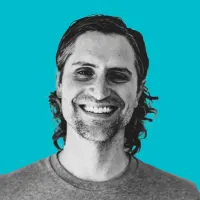


The concept of metalineage, which was created by Thomas McConkie, urges us to look beyond the confines of certain lineages and traditions and investigate the interconnectedness that lies at the foundation of diverse spiritual, religious, philosophical, and cultural practices. It encourages us to look past the boundaries that separate us and consider the universal truths and principles that unite all people. Accepting metalineage allows us to see the richness and variety of human experience as well as the universal truths that cut across all cultures.
Metalineage is a change from exclusivity to inclusivity, which fosters a sense of coherence among the diversity of human ideas and ideals. Metalineage encourages communication, understanding, and teamwork among people from diverse backgrounds by looking for shared interests and perspectives. It encourages us to approach the world with curiosity and openness, realizing that we can learn a lot from conversing with people who have different viewpoints.
By recognizing the concept of metalineage, we acknowledge that no tradition or lineage has exclusive access to knowledge. Instead, we see the potential for growth and transformation that results from engaging with the collective wisdom of humanity. Metalineage pushes us to transcend beyond the confines of our individual viewpoints and embark on a journey of study and discovery. These teachings and practices that cross time, culture, and belief systems bring resonance and inspiration. We gain a better understanding of ourselves, other people, and the complex web of life, of which we are all part, by doing this.

The concept of metalineage, which was created by Thomas McConkie, urges us to look beyond the confines of certain lineages and traditions and investigate the interconnectedness that lies at the foundation of diverse spiritual, religious, philosophical, and cultural practices. It encourages us to look past the boundaries that separate us and consider the universal truths and principles that unite all people. Accepting metalineage allows us to see the richness and variety of human experience as well as the universal truths that cut across all cultures.
Metalineage is a change from exclusivity to inclusivity, which fosters a sense of coherence among the diversity of human ideas and ideals. Metalineage encourages communication, understanding, and teamwork among people from diverse backgrounds by looking for shared interests and perspectives. It encourages us to approach the world with curiosity and openness, realizing that we can learn a lot from conversing with people who have different viewpoints.
By recognizing the concept of metalineage, we acknowledge that no tradition or lineage has exclusive access to knowledge. Instead, we see the potential for growth and transformation that results from engaging with the collective wisdom of humanity. Metalineage pushes us to transcend beyond the confines of our individual viewpoints and embark on a journey of study and discovery. These teachings and practices that cross time, culture, and belief systems bring resonance and inspiration. We gain a better understanding of ourselves, other people, and the complex web of life, of which we are all part, by doing this.
You May Also Like

Thomas McConkie


